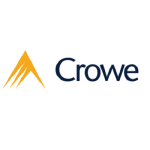The Singapore Budget 2021 was unveiled by the deputy prime minister and finance minister, Heng Swee Keat, on February 16 2021. Some of the salient tax changes proposed in Budget 2021 are summarised below.
Extension of Budget 2020 tax measures
Several tax and non-tax measures were introduced in Budget 2020 to mitigate the widespread financial impact of COVID-19 on businesses and workers. As there is still no sight to the end of COVID-19 and certain sectors of the economy are still languishing from the effects of the pandemic, some of the relief measures have been extended. The following are three temporary tax measures that were extended.
Enhanced carry-back relief scheme
Under the normal carry-back relief scheme, unabsorbed capital allowances and trade losses (collectively referred to as ‘qualifying deductions’) may be carried back to the immediate preceding year of assessment (YA). In last year’s Budget, the carry-back relief scheme was enhanced to allow the qualifying deductions for YA 2020 to be carried back up to three immediate preceding YAs, subject to conditions.
The enhanced carry-back relief scheme will be extended to apply to qualifying deductions for YA 2021. With this extension, qualifying deductions for YA 2021, subject to conditions, may be carried back up to three immediate preceding YAs. As the amount of qualifying deductions that can be carried back remains capped at S$100,000 (approximately US$74,460), this measure will benefit smaller businesses the most.
Option to accelerate tax write-off on costs of acquiring plant and machinery
The option to accelerate the write-off of the cost of acquiring qualifying plant and machinery will be extended to qualifying capital expenditure incurred on the acquisition of plant and machinery in the basis period for YA 2022 i.e. financial year (FY) 2021. This will help to ease the cashflow of businesses that intend to purchase new assets.
Under the accelerated option, businesses can claim capital allowance of 75% of the qualifying cost incurred in the first year and 25% of the qualifying cost incurred in the second year. No deferment of the capital allowance claim is allowed under this option.
Option to accelerate the deduction for renovation and refurbishment expenses
Generally, expenditure incurred on renovation and refurbishment (R&R) works that relate to the business setting (e.g. electrical installation, lighting works, flooring works, etc) do not qualify for capital allowances. However, taxpayers who incur prescribed R&R expenditure for the purposes of their trade, profession or business may claim tax deduction on those R&R costs over three consecutive YAs, subject to an expenditure cap of S$300,000 for every relevant three-year period.
For qualifying R&R costs incurred during YA 2021 (i.e. FY 2020), taxpayers were given the option to claim R&R deduction in one YA. The option to claim R&R deduction in one YA will be extended to qualifying expenditure incurred on R&R in the basis period for YA 2022 (i.e. FY 2021).
Goods and services tax
GST rate increase
It was announced that the planned goods and services tax (GST) rate increase from 7% to 9% will happen between 2022 to 2025. The timing of the increase will be subject to the economic outlook.
Extension of GST to low-value goods and all imported services
There is an import relief threshold of S$400 (low-value goods) whereby low-value goods imported via air or post are not subject to GST. In addition, business-to-consumer (B2C) imported non-digital services (such as live interaction with overseas providers of educational learning, fitness training, counselling and telemedicine) are also not subject to GST.
With effect from January 1 2023, GST will be extended to low-value goods which are imported via air or post and B2C imported non-digital services. The implementation details will be finalised after the Inland Revenue Authority of Singapore has consulted the industry.
Refinements to the Singapore tax incentives
DTDi scheme
The double tax deduction for internationalisation (DTDi) scheme provides 200% tax deduction on qualifying expenditure from prescribed activities undertaken by businesses to internationalise. To keep up with the changes in the business environment due to COVID-19, the scope of qualifying expenses under the DTDi scheme will be enhanced to cover specified expenses incurred to participate in virtual trade fairs that are approved by Enterprise Singapore. The list of qualifying expenses for overseas investment study trips will also be expanded to include logistics costs to transport materials/samples used during the investment trips.
Double tax deduction for qualifying upfront cost attributable to retail bonds
Bond issuers who carry on a trade or business in Singapore, are allowed to claim double tax deduction on qualifying upfront cost that is attributable to retail bonds issued during the period from May 19 2016 to May 18 2021 (both dates inclusive) under the Seasoning Framework and Exempt Bond Issuer Framework. This double deduction scheme will be extended for qualifying upfront cost incurred on or after May 19 2021 that is attributable to rated retail bonds (instead of all retail bonds) issued during the period from May 19 2021 to December 31 2026. This refinement to the scheme will help to provide investors with access to rated retail bonds.
NPO tax incentive
The not-for-profit organisation (NPO) tax incentive provides tax exemption on the income derived by an approved NPO and is scheduled to lapse after March 31 2022. The NPO tax incentive will be extended till December 31 2027.
ASP and 100% IA scheme
The automation support package (ASP) supports large-scale deployment of automation solutions which includes 100% investment allowance (IA) on the amount of capital expenditure for automation projects that are approved by Enterprise Singapore from April 1 2016 to March 31 2021. The 100% IA scheme provides for an allowance of up to 100% of qualifying equipment costs net of grant on top of the normal capital allowance.
The ASP will lapse after March 31 2021. However, the 100% IA scheme will be extended by two years from April 1 2021 to March 31 2023 for automation projects approved by Enterprise Singapore to encourage medium and large local enterprises to invest in large-scale automation projects.
Philanthropy and volunteerism
Tax deduction for qualifying donations
To continue encouraging philanthropism within the community, the 250% tax deduction for qualifying donations made to institutions of a public character (IPCs) and other qualifying recipients will be extended to December 31 2023.
Business and IPC Partnership Scheme
The Business and IPC Partnership Scheme (BIPS) supports corporate volunteering by providing 250% tax deduction on qualifying expenditure such as wages incurred by a qualifying person in respect of provision of services by the person’s qualifying employee to an IPC or secondment of the person’s qualifying employee to an IPC. This scheme will be extended till December 31 2023.
Singapore Green Plan 2030
The Singapore Green Plan 2030 is a long-term plan to secure a green, liveable, and sustainable home for future generations. A component of this plan is to encourage the early adoption of electric vehicles to reduce carbon emissions and the following tax measures were announced in support of this.
Electric vehicle early adoption incentive
The additional registration fee (ARF) is a tax imposed upon registration of a vehicle in Singapore. There is a 45% rebate off the ARF for electric cars and taxis from January 2021 to December 2023 at a cap of $20,000, with an ARF floor of $5,000. The ARF floor will be reduced to S$0 for electric cars and taxis from January 2022 to December 2023.
Revision to petrol duty rates
Petrol duty rates were raised by 10 cents to 15 cents per litre with immediate effect from the Budget 2021 announcement. To ease the transition to the revised petrol duty rates, a partial road tax rebate will be provided for petrol and petrol-hybrid vehicles for one year. Petrol duty rebate is also introduced as an additional support for active drivers of taxis and private hire cars and individual owners of motorcycles.
In addition to the above, there are several initiatives in this year’s Budget to position Singapore to emerge stronger from the pandemic.
Liew Kin Meng
T: +65 6856 9933












